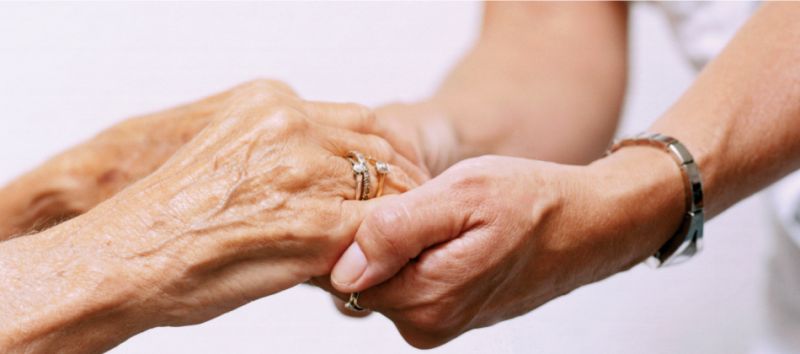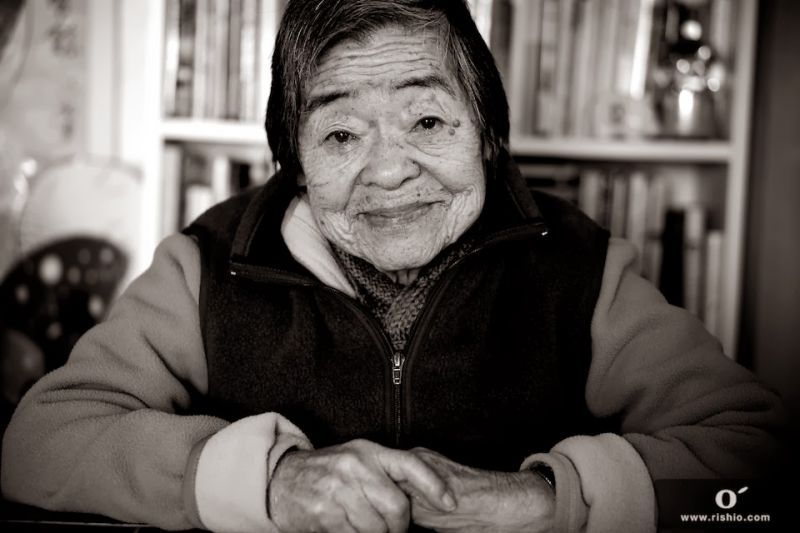Mia Tagano: 96 Ways To Love
 Sanskrit has 96 words for love. English has one. Although Mia Tagano speaks English, she expands the boundaries of love in a myriad of ways. Listening to Ms. Tagano on our Global Awakin Call, one could feel the love oozing out of the words, the phone lines, and the connections. Two listeners who called in during the Q&A used the word “palpable” to describe how they felt about Mia’s sharing.
Sanskrit has 96 words for love. English has one. Although Mia Tagano speaks English, she expands the boundaries of love in a myriad of ways. Listening to Ms. Tagano on our Global Awakin Call, one could feel the love oozing out of the words, the phone lines, and the connections. Two listeners who called in during the Q&A used the word “palpable” to describe how they felt about Mia’s sharing.
A great example of how Mia expresses selfless love is simply agreeing to be on the call. Last year, a number of Service Space volunteers had begged Mia to be a guest on the weekly Awakin call. The always humble Tagano said, “Thank you, but no.” When this week’s guest had to cancel, however, Mia agreed to help out, but only under the condition that the call focus on her 95 year old grandmother. So Tagano’s very presence on this call was an act of love for Service Space and her grandmother.
What a treat it was for everyone to listen to this Royal Shakespearean actress and professional voice over artist share stories about and wisdom from her maternal grandmother. Tagano considers her grandmother her best friend. “She teaches me to be in the moment,” says Mia. As it turns out, both Mia and her grandmother have a lot more to teach us than mindfulness.
Always Choose Love
Mia Tagano did not have an easy childhood. She grew up “a shy girl .jpg) from a tribe of poor but honest farmers.” Her mother was a single parent for a long time, so her grandmother and grandfather took care of her. Mia reflects, “I spent a lot of time on the fields they would farm. We always had enough to eat, though as far as things are concerned, we didn't have a lot. But I had a lot of love from my grandparents and the other workers on the field.”
from a tribe of poor but honest farmers.” Her mother was a single parent for a long time, so her grandmother and grandfather took care of her. Mia reflects, “I spent a lot of time on the fields they would farm. We always had enough to eat, though as far as things are concerned, we didn't have a lot. But I had a lot of love from my grandparents and the other workers on the field.”
From an early age, Mia learned to give love above all else. Later in life, at a leprosy community in India, she realized that “when you’re given such love, there’s a responsibility to give back.” So when her grandmother, Mutsuko, experienced dementia and was put in a home, Mia committed to spending time with her grandmother regularly, at one point every day.
Hearing stories about Mia’s visits to her grandmother is like watching a romantic love affair. They hold hands, laugh together, go for walks around the nursing home, and when Mia leaves she kisses her grandmother’s face ALL OVER—her forehead, her eyes, cheeks, and mouth.
As Tagano points out, however, it is not always easy to choose love. It can be frustrating visiting someone who has no short term memory and who doesn’t remember about the visit the day before. “But I also had to look at myself and say, ‘Why am I impatient? Why does that bother me? Why should it bother me?’ We have children. If I can listen to a child ask me the same question over and over again, why can't I do that with my grandmother or anyone else? My acting training has taught me to work moment-to-moment and to be able to re-create a show a hundred times. That's easy for me. Now it's especially easy, because every time she speaks, it's an extra word I get.”
For Mia the glass is not only half full; it is overflowing with love: “I've had a lot of sadness in my life. I've had a lot of pain in my life. And what I've learned from that is that those experiences help me to be a better teacher, a better actor. But also, I can't live in that world. I don't add anything to the world that is positive if I live in my pain or my sorrow.”
Choosing love becomes especially important in intimate relationships. Mia offers the key to her successful relationship with her partner, John Malloy: “I focus on what we have, what I love about John, or what I love about my grandmother, or what is beautiful, rather than what doesn't work or what annoys or bothers me. You can choose either side. When I have a moment with John or even with my grandmother (which doesn't really happen anymore), I just take a breath and then re-look. ‘Who is this? This is my best friend. The one with the beautiful eyes, with the kind heart’. Every day, I remember what I love. I don't take it for granted.”
Mia also makes it a practice to extend love to those who are different from herself. When she speaks about religion she explains, “I love where community gets together in prayer. I love faith. I love believing in something. But I never want to exclude anyone. I don’t pick a religion; I don’t speak in a way that excludes anyone…There are so many words for God; I just follow suit. What we’re really saying is ‘I love you. Please love me. Forgive me. Let it be okay’. It’s simple.”
Mia even pushes her growing edge by extending kindness to people who rub her the wrong way or have hurt her: “If we can forgive and be kind and focus on what we can do instead of what we can’t, I think there’s more hope. Keep loving each other. Keep being kind and forgive each other and our mistakes or weaknesses.”
“We Are Stronger in Community”
What makes Mia Tagano’s story special is that when she goes to the nursing home to visit her grandmother, she not only gives love to Mutsuko, but also to all the other elders, patients, nurses, and families she encounters. “If I just went in and just visited with my grandmother, it would be a small world for her and for me.”
Mia shared stories of how complete strangers became intimate friends to both her and her grandmother. Walking around the nursing unit, Mia and Mutsuko say hi to everyone, often with touch as well as words. When Mia started talking to and kissing her grandmother’s roommate, Anna Mae, the resident didn’t show any emotion at all. Her grandmother would say about Anna Mae, “that lady over there, she just stares.”

Over time, Anna Mae started to respond: “Her eyes would start to focus. Then she started to say hello.” Now Mia’s grandmother says about her roommate, “This is my friend.” The other day, when Anna Marie was leaving in her wheelchair, Mutsuko said, “Hey, don’t go too far. Be careful.”
Someone needs to follow Tagano around the nursing home and study the healing that is possible through connection, community, and touch. As Mia puts it, “We are connected in ways we cannot understand. These moments mean something to all of us, even if there does not seem to be recollection the next day. Connected kindness is felt by both parties.”
Service Heals
One of the ways Mia and her grandmother embody this “connected kindness” is through selfless service to others. During World War II, Mutsuko, was sent to an internment camp in Poston, Arizona. One of the mantras that helped many Japanese Americans survive the camps is “shikata ga nai”—it cannot be helped. Mia and her grandmother seem to transcend the passivity and resignation of “shikata ga nai.” Their service proves that “it can be helped…by helping.”

In the camps, Mutsuko didn’t sit around and feel sorry for herself. She has perfect pitch, so she used to sing to other internees who were depressed to make them feel better. She also made and served food in the mess hall. In the face of injustice, imprisonment, and war, Mutsuko healed others and herself by serving.
Mia continues this healing tradition by not only serving the elders in the nursing home, but also working with at-risk youth and indigenous communities with her partner, John Malloy. Mia maintains that the healing is not just external, but also internal: “Every time I give back and do service or am kind, something heals in me.” Moreover, all of this service is done with humility. One of the reasons Mia turned down the first invitation to be an Awakin Call guest is because she didn’t want to call attention to herself or her service. She wanted to serve invisibly.
Mia draws on her acting training to explain this humility. She was trained in the Suzuki Technique of acting where the actor tries to remain invisible. One actor comes on stage and everyone notices how beautiful and elegant they are. They point at the moon, and “Oh, my goodness, the point! You can see the talent.”

The other actor comes out and points at the moon, and you see the moon. It’s almost as if the actor isn’t there--what Yoshi Oida calls “the invisible actor.” In her acting career, Tagano tries to be the invisible actor. Even when she was with the Royal Shakespeare Company, she didn’t want to get “too big for [her] britches.” This humility carries over into her service, writing, and volunteer work. She tries to remain invisible and seamlessly channel love, compassion, and care.
Mia doesn’t take this legacy of service from her grandmother lightly. She anticipates the passing of her grandmother and the way she will honor Mutsuko’s life: “When my grandmother dies... I've often thought a part of me will die too. But what I've learned is that, if something of me dies, if I don't continue service and continue loving, the way that I've learned from her and from the other residents, that would be very sad. Someone said your service is the rent you pay for living on Earth. That's so true. When she goes, I will bless her life with my tears, and then I will continue on, doing what I do.”

As the Awakin Call came to a close, one couldn’t help but feel touched by Mia’s love. It is almost as if we were able to experience the “palpable” power of Mia’s heart from the point of view of an isolated nursing home resident. Although I was sitting in a room all by myself, I felt like someone had kissed my face all over.
Posted by Kozo Hattori on May 1, 2015



On May 4, 2015 Mia Tagano wrote:
Post Your Reply